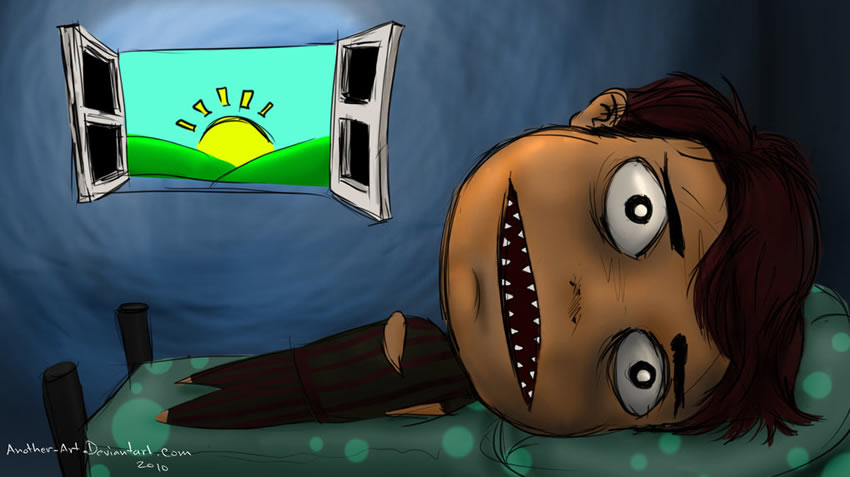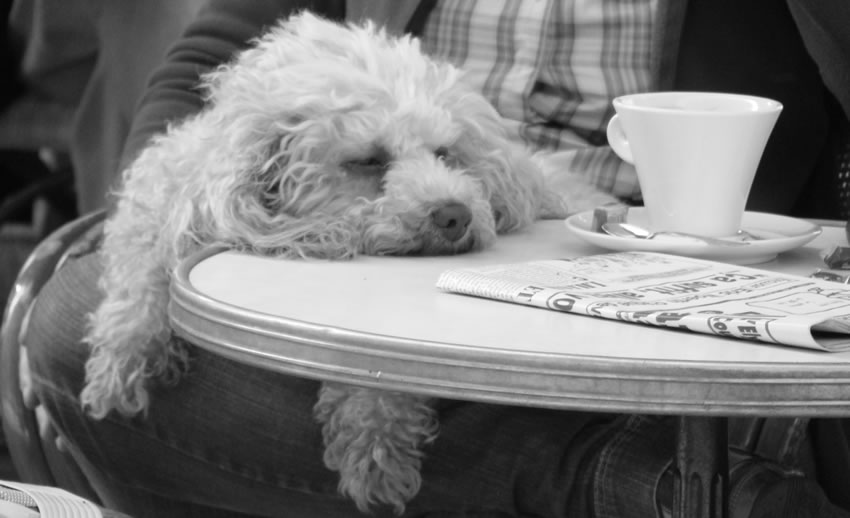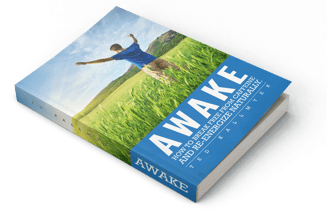Caffeine and Sleep: Keep It From Stealing Yours
Caffeine is prized because it combats sleep and feeling tired, but this can be a double-edged sword.

Caffeine can actually prevent people from getting a good night’s sleep1, which means that even more caffeine is needed the following morning to feel functional.
This can become a vicious cycle if a caffeine user isn’t careful.
Here’s how you can be sure to not let caffeine rob you of your precious sleep.
How Caffeine Prevents Sleep
Caffeine primarily prevents sleep by blocking adenosine receptors in the brain. Basically, adenosine is the neurotransmitter that signals the brain that the body is tired and in need of rest.
Caffeine fits nicely into these receptors and prevents adenosine from doing its job. As long as there is a steady supply of caffeine flooding the receptors, sleep will be hampered.
Some may still be able to fall asleep even though caffeine is still blocking the adenosine receptors, but this sleep is usually shallow and restless.
Caffeine Disrupts Circadian Rhythm
Not only does caffeine block adenosine receptors, but if it is consumed too close to bedtime, it can throw a person’s entire circadian rhythm off.
Researchers from the MRC Laboratory of Molecular Biology 7 in the UK found that when study participants were given 200 mg of caffeine 3 hours prior to bedtime, the caffeine delayed their normal circadian sleep pattern by 40 minutes. Participants who also were exposed to bright light along with the caffeine had their sleep cycle delayed by 105 minutes.
Not only does this affect how well you fall asleep but also how good you feel the next morning.
Why Sleep Is Important
For humans, sleep is a necessity.2 Sleep is when much of your body’s repair and rejuvenation processes take place. Adults should get 7-8 hours of sleep a night and children still developing should get 9+ hours of sleep each night.
In fact, one of the main reasons excessive caffeine isn’t recommended for children is because sleep is so vital for proper brain development and caffeine can interfere with the duration and quality of sleep a child needs to get.3
Lack of quality sleep is also linked to obesity, mental illness, high blood pressure, and stress.4 Therefore, it is crucial that you get plenty of rest if you want to be in the best health that you can be.

How To Stop Caffeine From Stealing Your Sleep
Unfortunately, caffeine and lack of sleep all too often form a vicious cycle. People often consume caffeine because they don’t get enough sleep and then caffeine prevents them from getting the amount and quality of sleep they require to feel awake and energized.
Active Edge has developed a sleep shirt that uses low-wave frequency technology to improve the quality of sleep. This could also be something to try if caffeine is affecting your quality of sleep.
However, there are some steps that you can take to break the cycle and still get adequate sleep while using caffeine. Really heavy caffeine users may benefit from a caffeine detox prior to these steps in order to reset their tolerance to caffeine.
First, don’t consume caffeine too late in the afternoon. 5 If you want to get to bed at 10, then you should probably avoid caffeine after 12 noon. If at noon you consumed 200 mg of caffeine, based on caffeine’s half-life of 5.7 hours, you would still have over 50 mg in your system at 10 pm.
Plus, this doesn’t account for any caffeine you consumed earlier in the day, which is also still being processed. If you have a high sensitivity or low built up tolerance to caffeine you may need to stop your consumption even earlier.
Secondly, know your personal safe daily dose of caffeine and avoid having more than that. You can find this by using our caffeine calculator, but for most people it is between 300-400 mg per day. Insomnia is one of the leading caffeine overdose symptoms and can prevent you from getting the sleep you need.
Finally, don’t consume caffeine as soon as you wake up in the morning. Research shows6 that caffeine works best when taken 1-2 hours after waking. When we first wake up, our bodies are in a natural awakening state.
If you wait and consume caffeine after this awakening state is wearing off, it will be much more effective in helping you feel alert and productive. Additionally, it will help keep you from consuming too much caffeine, which would interfere with your sleep the following night.

Signs Caffeine is Preventing Sleep
If you aren’t sleeping well and aren’t sure whether caffeine is interfering with your sleep or not, here are some things to look for.
- Do you have trouble falling asleep?
- Do you fall asleep but wake back up shortly after?
- Do you sleep but wake up often throughout the night?
- Do you toss and turn a lot while you sleep?
- Do you often use sleeping pills to help you get to sleep?
These all can be indicators that the caffeine still in your system is preventing you from sleeping properly. If you can identify with any of these, you should take the steps mentioned above to more properly manage your caffeine consumption.
While caffeine can be useful for helping us be more alert and productive during our busy lives, it can interfere with our sleep. By practicing a little caffeine hygiene, you will be promoting better sleep hygiene as well.
On a side note, Recent research conducted by the American Academy of Sleep Medicine found that caffeine does not help with multiple days of sleep deprivation. If you haven’t been sleeping, don’t get behind the wheel of a car or try some other focus required task even if you’ve had coffee or some other source of caffeine. There is no substitute for a good night’s sleep!

Get Help Quitting Caffeine
Reduce your caffeine intake without pain and discomfort.
Download our FREE ebookReferences
- 1. Mercader, C., & Patel, B. P. (2013). Caffeine abuse: the phantom differential in sleep complaints/disorders?. Journal of Substance Use, 18(3), 242-245. abstract
- 2. Luyster, F. S., Strollo Jr, P. J., Zee, P. C., & Walsh, J. K. (2012). Sleep: a health imperative. Sleep, 35(6), 727. abstract
- 3. Telzer, E. H., Fuligni, A. J., Lieberman, M. D., & Galván, A. (2013). The effects of poor quality sleep on brain function and risk taking in adolescence. Neuroimage, 71, 275-283. abstract
- 4. Strine, T. W., & Chapman, D. P. (2005). Associations of frequent sleep insufficiency with health-related quality of life and health behaviors. Sleep medicine, 6(1), 23-27. abstract
- 5. Drake, C., Roehrs, T., Shambroom, J., & Roth, T. (2013). Caffeine effects on sleep taken 0, 3, or 6 hours before going to bed. Journal of clinical sleep medicine: JCSM: official publication of the American Academy of Sleep Medicine, 9(11), 1195. abstract
- 6. Waterhouse, J., Fukuda, Y., & Morita, T. (2012). Daily rhythms of the sleep-wake cycle. J Physiol Anthropol, 31(5), 1-9. abstract
- Science Translational Medicine 16 Sep 2015: Vol. 7, Issue 305, pp. 305ra146 DOI: 10.1126/scitranslmed.aac5125





